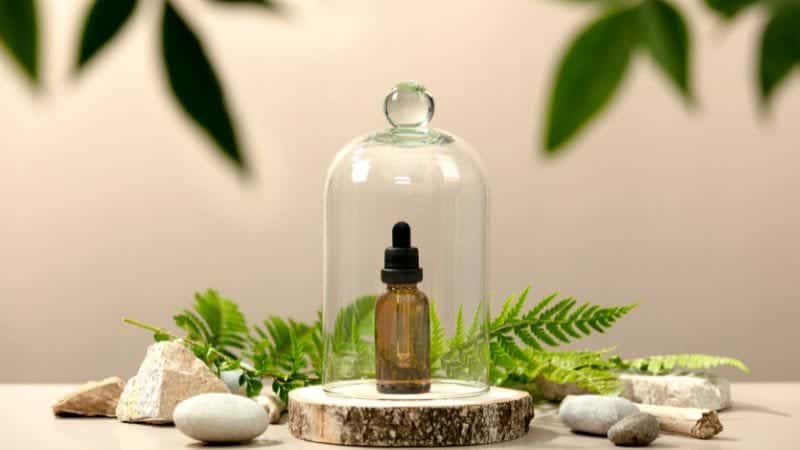
Different Types of Cosmetic Packaging
The type of packaging you choose will largely depend on the product’s formulation.
A liquid foundation has very different needs than a thick body scrub.
Jars
Cosmetic jars are wide-mouthed containers, typically cylindrical, used for a variety of beauty products. They are an excellent choice for products with a thicker consistency that would be difficult to dispense from a pump or a bottle.
- Best for: Face creams, body butters, lip balms, scrubs, and gel-based products.
- Materials: Jars can be made from glass or plastic. Glass jars often convey a sense of luxury, while plastic jars are more lightweight and shatter-resistant.
- Lid Options: Jars come with various lid options, including screw-on caps and press-on lids, which provide a secure seal to protect the product.
Bottles
Bottles are suitable for a wide range of product consistencies, from watery liquids to thick lotions.
- Best for: Facial serums, foundations, cleansers, toners, lotions, and fragrances.
- Dispensing Options:
- Pump: Ideal for lotions and liquid foundations, a pump dispenses a controlled amount of product, which is both hygienic and convenient.
- Sprayer: Perfect for facial mists, body sprays, and perfumes, a sprayer creates a fine mist for even application.
- Standard Cap: Simple screw-on or flip-top caps are common for products like cleansers and toners.
Tubes

Squeezable tubes are a popular choice for many cosmetic products due to their portability, ease of use, and hygienic dispensing.
- Best for: Hand creams, sunscreens, facial cleansers, and lip gloss.
- Benefits: Tubes protect the product from exposure to air and light, and they allow for almost complete evacuation of the product, minimizing waste. They are also lightweight and durable.
Droppers

Dropper bottles, also known as pipette bottles, offer an elegant and precise way to dispense liquid formulas.
- Best for: Serums, facial oils, essential oils, and hair treatments.
- Functionality: The glass or plastic dropper allows the user to dispense the product one drop at a time, preventing waste and ensuring accurate application. This is particularly important for potent, concentrated formulas.
Best Cosmetic Packaging Material
Plastic Packaging
Plastic is the most widely used material in the beauty industry.
- Types of Plastic: Different types of plastic are used for different products. PET is common for bottles due to its clarity and strength, while HDPE is often used for more rigid bottles and jars.
- Benefits: Plastic packaging is shatterproof. Its low weight also helps to keep shipping costs down.
Metal Cosmetics Packaging
Metal brings a touch of luxury and durability to cosmetic packaging.
- Materials: Aluminum is the most common metal used. It’s lightweight, shatterproof, and offers excellent protection against light and air.
- Best for: Lip balms, solid perfumes, and high-end creams.
Glass Packaging
Glass has long been associated with luxury and quality in the beauty world.
- Benefits: Glass is non-porous and impermeable, so it won’t interact with the product’s formula, making it ideal for preserving the integrity of sensitive ingredients, especially in fragrance and skincare. It also has a premium feel that can elevate your brand.
- Drawbacks: Glass is heavier than plastic, which can increase shipping costs, and it is fragile.
Somewang specializes in creating high-quality, innovative packaging solutions and can help you select the perfect jar, bottle, or tube that not only protects your product but also tells your brand’s story. We have a wide range of options, including sustainable packaging, and can help you with custom mold creation to make your product truly unique.
Latest Trends in Cosmetic Packaging

Sustainable Packaging
Sustainability is no longer a niche concern; it’s a mainstream demand. Brands are moving towards refillable packaging, using materials like PCR plastic, and designing for recyclability. The pouch is also gaining popularity as a refill option, using less material than a rigid container.
Minimalism
Clean, simple designs that communicate transparency and sophistication are on the rise. This trend often goes hand-in-hand with sustainability, focusing on using less material and communicating the purity of the ingredients.
Airless Packaging
Airless pumps and jars are gaining traction because they protect sensitive formulations (like those with vitamin C or retinol) from oxidation. This type of packaging creates a vacuum that dispenses the product without letting air in, extending the product’s shelf life.
Interactive and “Smart” Packaging
QR codes that link to tutorials, ingredient information, or virtual try-on experiences are becoming more common. This bridges the gap between the physical product and the digital world.
FAQs
How do I choose the right type of packaging for my beauty product?
Consider your product’s consistency, ingredients, and how the customer will use it. Liquids do well in bottles with pumps, sprayers, or droppers. Creams and balms are perfect for jars. Also, think about your brand’s identity—do you want to convey luxury or practicality and durability?
What is the most sustainable cosmetic packaging?
Glass and aluminum are infinitely recyclable. However, their production is energy-intensive. Plastic is lightweight, reducing carbon emissions during shipping, and many types are recyclable. Refillable packaging and post-consumer recycled (PCR) materials are some of the most sustainable options currently available.
How can packaging affect my product’s shelf life?
Packaging plays a huge role in preserving your product. Opaque materials protect light-sensitive ingredients. Airless packaging prevents oxidation. A well-sealed lid prevents contamination and keeps the product from drying out.
Can I customize the shape of my cosmetic packaging?
Absolutely. Creating a custom mold for your packaging is a great way to make your product stand out on the shelf. A unique shape can become a signature part of your brand identity. Companies like Somewang can work with you to design and manufacture a custom packaging solution.
